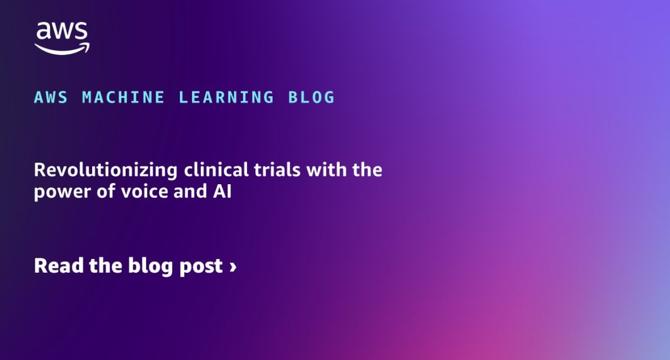Amazon
1M
370

Image Credit: Amazon
Revolutionizing clinical trials with the power of voice and AI
- The integration of technologies like audio-to-text translation and large language models (LLMs) can revolutionize the way patients receive vital medical information, improving patient outcomes and driving progress in the healthcare domain.
- Healthcare providers can deliver personalized care using a voice-enabled virtual assistant that utilizes LLMs to provide context-aware responses tailored to patient's queries, enhancing patient education and empowerment.
- Combining speech recognition technology with LLMs in clinical trials allows accurate transcription of patient queries for context analysis and provision of relevant responses, benefiting patient education and engagement.
- Potential benefits include instant access to reliable information for patients, enhanced patient safety, and streamlined data collection and analysis in clinical trials, improving decision-making processes.
- Integrating audio-to-text translation and LLM capabilities in site monitoring enhances efficiency and accuracy, facilitates regulatory compliance, and supports decision-making for site selection based on historical performance data.
- By enhancing adverse event reporting in clinical trials with audio-to-text and LLMs, patient safety is improved, data accuracy is enhanced, and regulatory compliance is facilitated, supporting efficient clinical research.
- The use of audio-to-text translation and LLM integration in patient care allows for personalized care recommendations, streamlined communication, and continuous learning for improved patient outcomes and healthcare efficiency.
- Efficient and accurate clinical trial protocol design is facilitated by combining audio-to-text translation with LLMs, enabling streamlined processes, data integration, and informed decision-making for researchers and regulatory bodies.
- An intelligent, voice-enabled assistant using audio-to-text translation and LLM capabilities improves patient access to disease and trial information, enhances communication, and supports informed decision-making in healthcare settings.
Read Full Article
22 Likes
For uninterrupted reading, download the app